June 12 2025
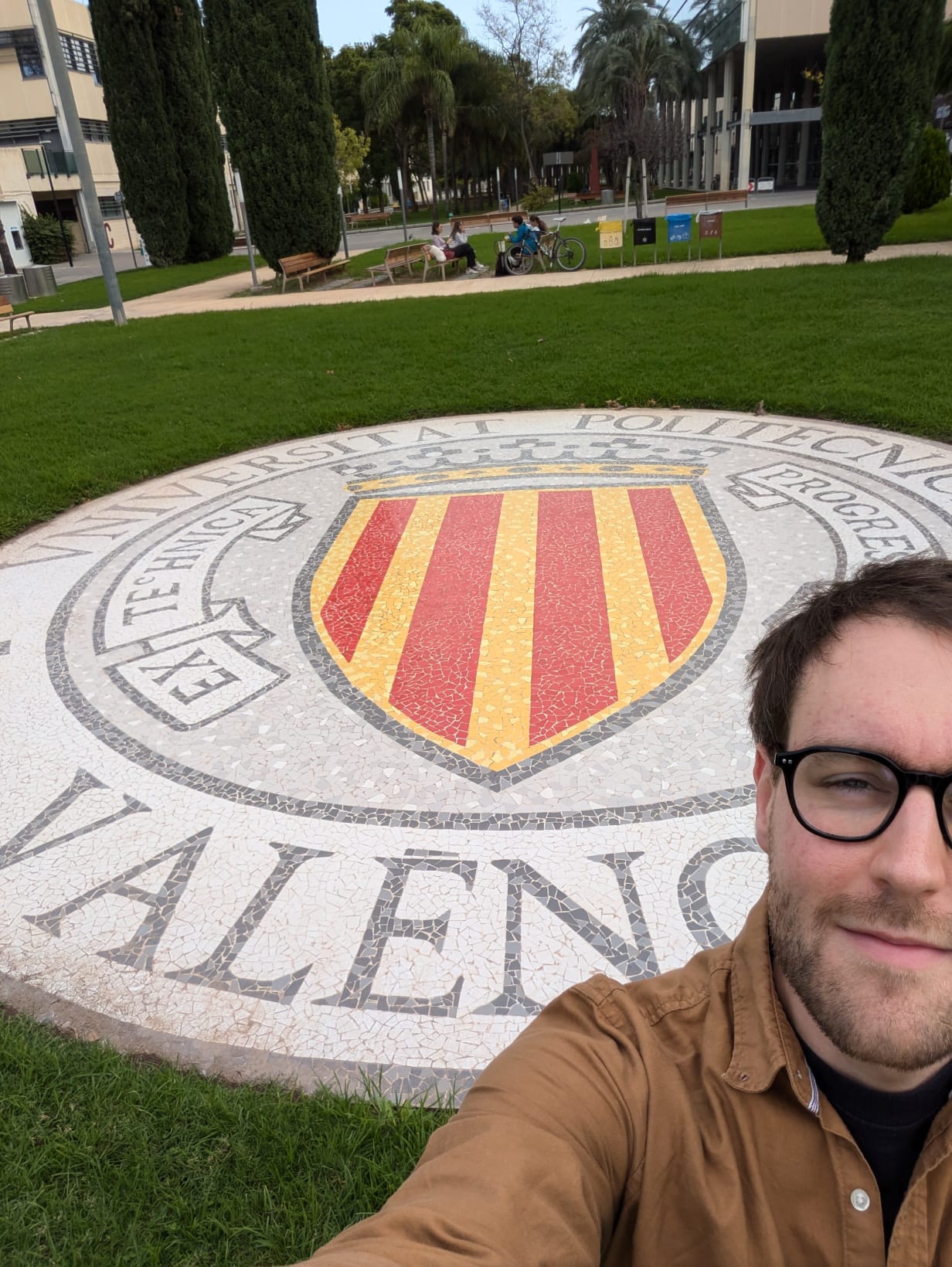
In December, I returned from a 10-week secondment at Universitat Politecnica de Valencia (UPV), where I had planned to conduct experimental tests to support my PhD on fuel cell turbocharging. Due to the tragic flooding in the area, I was unable to do so, but greatly developed my technical knowledge, professional experience, and received data to use in my models. It was a very enriching trip which greatly influenced my PhD and allowed me to experience living somewhere new.
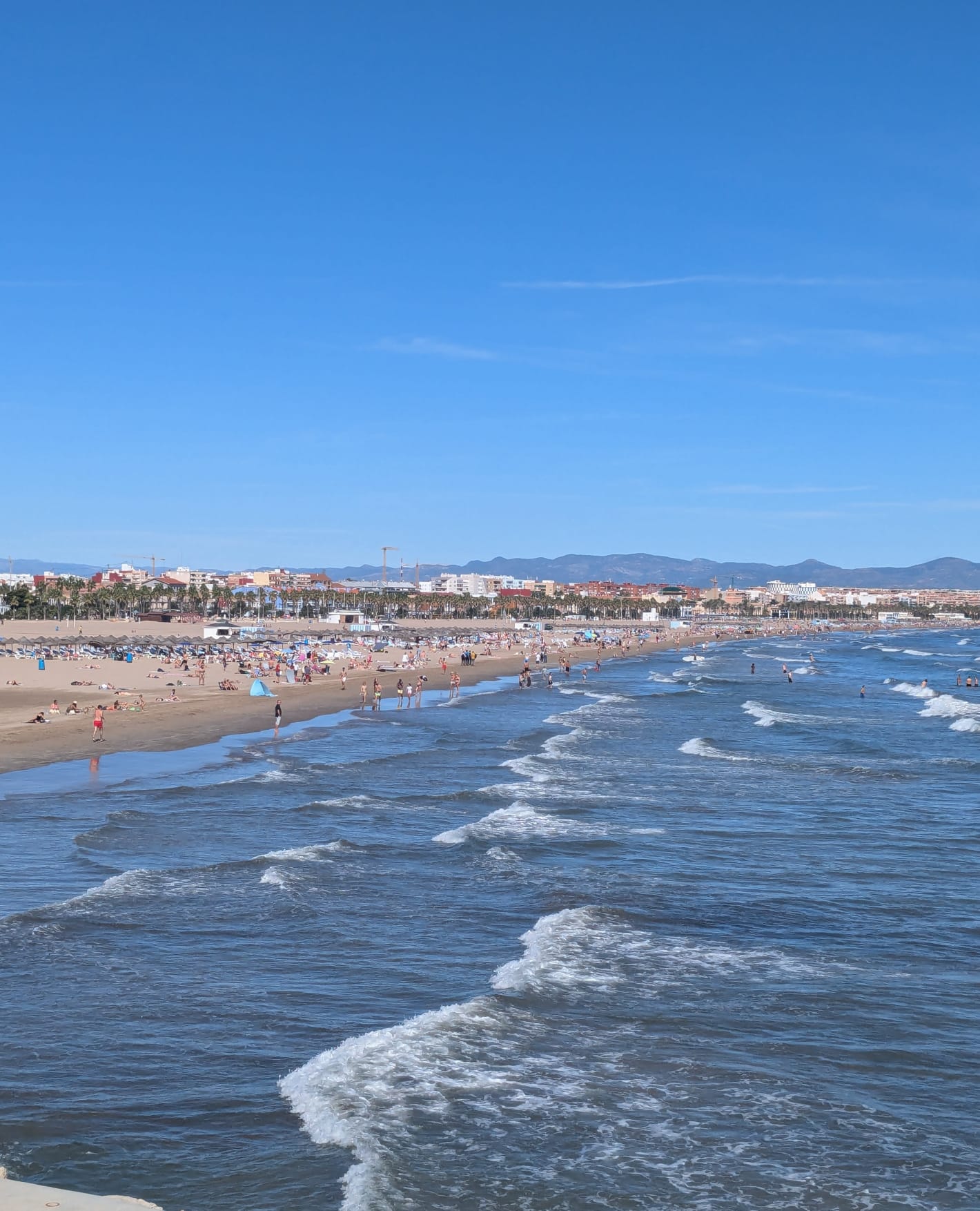
I planned to test a turbocharger under fuel cell conditions, exploring how condensation can form inside the turbine due to the humid, low temperature air flow that exits a fuel cell. Understanding this could enhance the efficiency and viability of fuel cell electric vehicles in the future, cutting carbon emissions of transport. My colleagues at UPV have previously studied the reverse phenomenon – the occurrence of evaporating water inside a compressor. With their experience, they were able to guide me through the underlying theory and build a hypothesis. They also showed me their experimental method, which will inspire my test setup at University of Bath for this very similar use case.
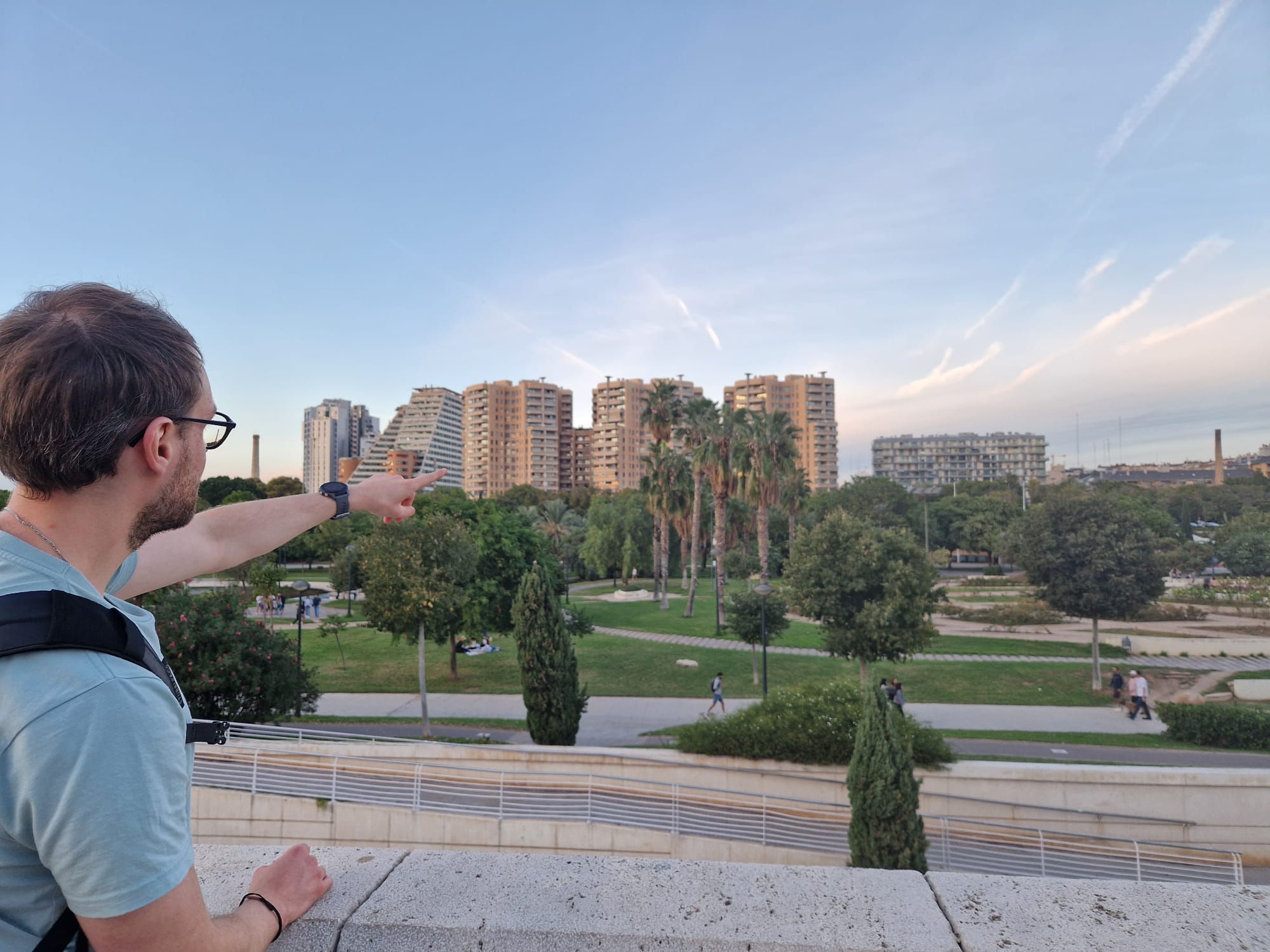
After a few weeks in Valencia, I spent three days in Aachen, Germany, to present a poster at the Aachen Colloquium of Sustainable Mobility. I was inspired by several presentations on fuel cell systems in the industrial context, including from MAHLE, EKPO Fuel Cell Technologies, and CellCentric, and had many opportunities to discuss my research and build my network. I was enthused when I arrived back in Valencia at the end of the week.
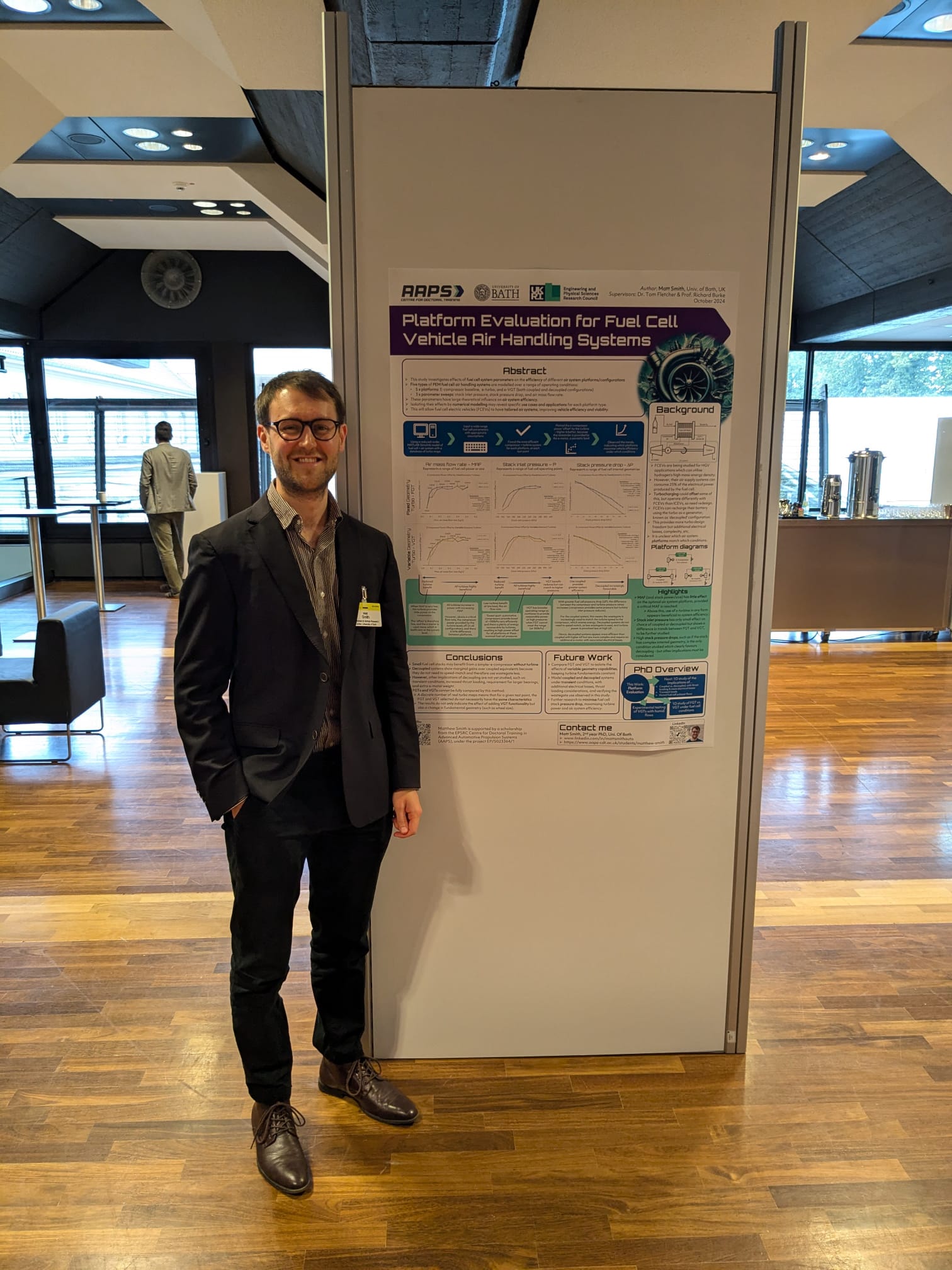

Shortly after, only 4 weeks into my visit, the Valencian region was struck by flash flooding which prevented all in-person University work for 2 weeks. With this and the subsequent backlog of experiments at UPV, I could not complete my planned testing during my visit. However, I was able to use previously collected data - using the same test equipment I planned to use - to develop my model and simulate a similar system to generate data. Working with my colleagues to develop the underlying theory of this project, I adjusted the course of my PhD for the better, narrowing its focus and moving it forward.
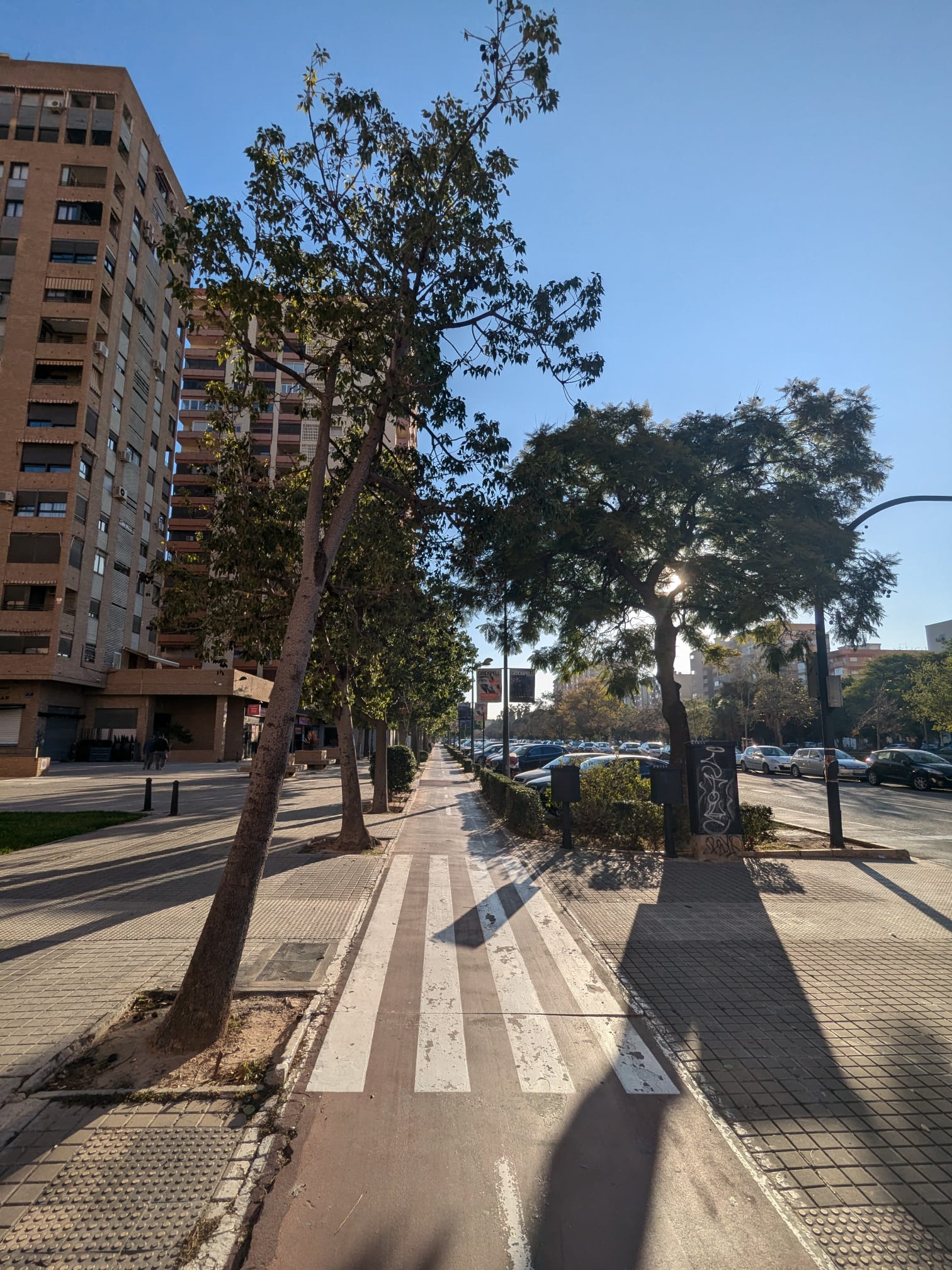
Outside of the office, I was lucky to have the opportunity to run the prestigious Valencia half marathon, and spectate the full marathon a few weeks later, right outside my flat’s window. I enjoyed many lunchtimes and evenings exploring this stunning city and its beaches on foot. Being passionate about transport, I also loved living in a city with such deeply integrated public transport systems. Metrovalencia is the city’s rapid transit network, providing 91 million journeys annually over 161.7km of trams and underground rail, including some which are automatically operated. Valencia also has a bike rental scheme, Valenbici, which benefits from 200km of cycle paths across the city, divided from main roads by lines of palm trees.
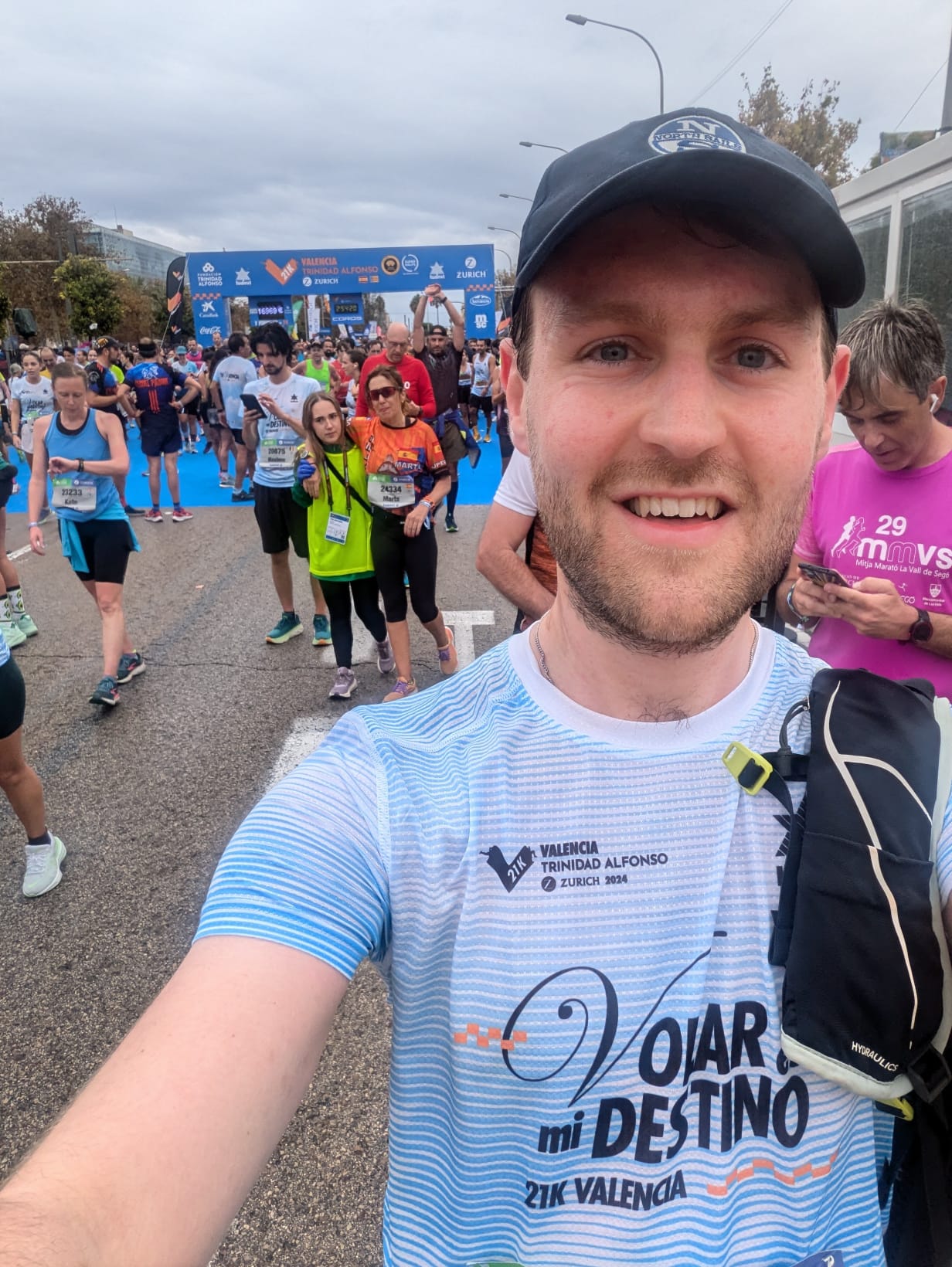
My time in Valencia didn’t go to exactly to plan, but it gave me fresh data, a new focus, and a deeper appreciation for the unexpected turns of research and travel alike.


21 May 2025


08 April 2025

© Copyright 2024 AAPS CDT, Centre for Doctoral Training in Advanced Automotive Propulsion Systems at the University of Bath